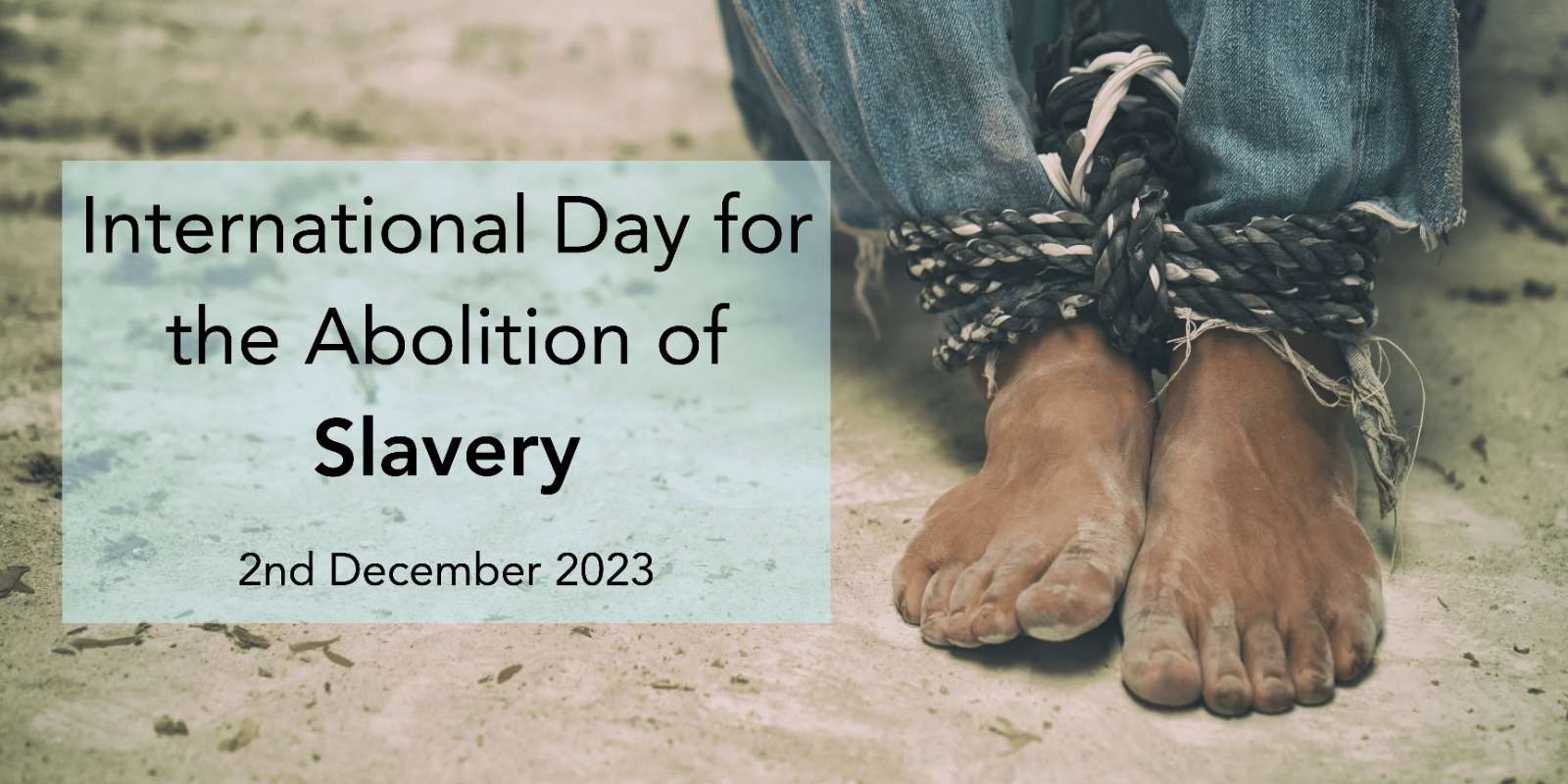International Day for the Abolition of Slavery

In a world that continually strives for progress and justice, the International Day for the Abolition of Slavery stands as a solemn reminder of an abhorrent practice that has persisted throughout history. Designated by the United Nations on December 2nd, this day aims to raise awareness about the persistence of modern slavery, commemorate the efforts to eliminate it and encourage collective action toward its complete eradication.
History of the Day
The roots of the International Day for the Abolition of Slavery can be traced back to the United Nations General Assembly’s adoption of the UN Convention for the Suppression of the Traffic in Persons and of the Exploitation of the Prostitution of Others on December 2, 1949. This convention sought to combat the ever-present threat of human trafficking and forced labor. The commemoration of this day serves as a tribute to those who have fought against slavery throughout history and underscores the commitment to creating a world free from exploitation.
Significance and Importance
The significance of this day lies not only in acknowledging the historical struggles against slavery but also in recognizing the contemporary challenges that persist globally. Slavery, in its modern forms, transcends borders and takes on various insidious forms, including forced labor, human trafficking, and child exploitation. The International Day for the Abolition of Slavery underscores the urgent need for coordinated international efforts to address and eliminate these practices.
Theme and Global Initiatives
Each year, the day is observed with a specific theme that reflects the current issues and challenges related to slavery. Themes may focus on aspects such as the role of education, the importance of legislation, or the need for global collaboration. International organizations, governments, and NGOs often launch initiatives to address specific aspects of modern slavery, promoting a comprehensive approach to combat this global issue.
The Role of Education and Awareness
Education emerged as a powerful tool in the fight against slavery. By raising awareness about the different forms of exploitation, educating communities about their rights, and fostering a sense of global responsibility, education becomes a key instrument in preventing and addressing the root causes of slavery. The International Day for the Abolition of Slavery serves as a platform to emphasize the importance of education in eradicating this heinous practice.
The Contemporary Face of Slavery
Despite significant progress in recent decades, slavery persists in various forms across the globe. From forced labor in supply chains to the trafficking of men, women, and children for various exploitative purposes, the contemporary face of slavery demands a concerted effort from the international community. The day serves as a call to action to confront and eliminate the systemic factors that allow slavery to persist in the 21st century.
Conclusion
The International Day for the Abolition of Slavery serves as a poignant reminder of the dark chapters in human history while highlighting the contemporary challenges that demand our attention. It is a day to renew our commitment to ending human exploitation in all its forms, emphasizing the need for education, awareness, and global collaboration. As we commemorate the efforts of those who have fought against slavery, let us also recognize that the battle is far from over, and our collective action is crucial in achieving a world free from the shackles of exploitation.
Key Points for UPSC Aspirants:
- Historical Roots: Understand the historical context of the International Day for the Abolition of Slavery, tracing it back to the UN Convention for the Suppression of the Traffic in Persons and of the Exploitation of the Prostitution of Others in 1949.
- Contemporary Challenges: Be aware of the current manifestations of slavery, including forced labor, human trafficking, and child exploitation, and the need for comprehensive strategies to combat them.
- Role of Education: Recognize the crucial role of education in preventing and addressing slavery, and understand how raising awareness can contribute to the eradication of this global issue.
- Global Initiatives: Stay informed about the annual themes and global initiatives launched on the International Day for the Abolition of Slavery, showcasing the international community’s commitment to addressing the problem.
- Importance of Collaboration: Understand the significance of global collaboration in the fight against slavery, as no single country can effectively tackle the issue in isolation.
- Contemporary Face of Slavery: Familiarize yourself with the modern forms of slavery, including forced labor in supply chains, and be prepared to analyze the systemic factors that allow slavery to persist.
- Significance of Legislation: Recognize the importance of national and international legislation in addressing and preventing slavery, and stay updated on legal frameworks and measures implemented globally.
Tags:
Best teachers in every subject.
Let’s get started
We can teach you anything
